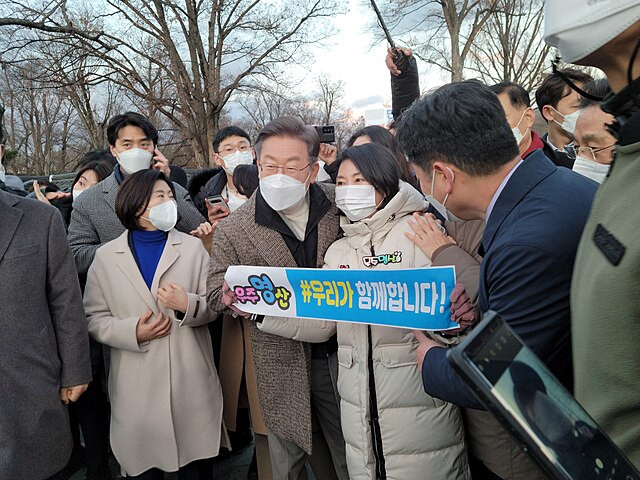The onset of 2024 has thrust South Korea into a political whirlwind following the violent stabbing of Lee Jae-myung, the leader of the Democratic Party of Korea, during a public event in Busan. The incident has not only sent shockwaves through the nation but also potentially sets the stage for shifts in the upcoming crucial national assembly elections.
Despite the deployment of 50 police officers, the assailant, wielding a 30-centimeter-long knife, managed to inflict a 1-centimeter laceration on Lee's neck before being apprehended. The 59-year-old opposition leader was swiftly given emergency treatment and is now recuperating at Seoul National University Hospital. His condition is reported as non-life-threatening, although concerns about further complications due to potential damage to his jugular vein linger.
This attack adds to a series of ordeals for Lee Jae-myung, who has recently faced allegations of corruption and was hospitalized following a hunger strike. As the leader of the largest opposition party in the parliament, his health and safety have significant implications for the political landscape, especially with the national assembly election looming on April 10. This election is pivotal for President Yoon Suk-yeol, who seeks to break free from the constraints imposed by the Democratic Party, currently holding the majority in the parliament.
The incident unfolded when a man, seemingly a supporter wearing a blue paper crown with "Support Lee Jae-myung" inscribed, approached Lee under the guise of seeking an autograph. In a shocking turn of events, the man drew a knife and attacked Lee. The attacker, a 67-year-old from South Chungcheong Province, had reportedly purchased the knife online last year with the specific intent of carrying out the attack, although his motives remain undisclosed.
President Yoon Suk-yeol has responded with a call for a swift and thorough investigation and emphasized that such violence cannot be tolerated under any circumstances. The Attorney General has ordered a special investigation team to probe the incident, signaling the gravity of the situation.
The Democratic Party has labeled the attack a "terrorist incident" that threatens the very fabric of democracy. With the election just months away, the party's whip, Hong Young-pyo, has called for calm and caution against politicizing the incident. However, the attack's timing and nature have inevitably stirred the political pot, with over 60% of voters viewing the upcoming election as a referendum on the Yoon administration.
Lee Jae-myung is a prominent figure in South Korean politics, known for his rags-to-riches story and advocacy for social welfare. His political journey from a worker from a poor family to a top political figure has been marked by significant achievements and controversies. Despite his narrow loss in the 2022 presidential election and the shadow of corruption allegations, Lee has maintained a strong following due to his progressive policies and assertive leadership.
The assault on Lee comes at a critical juncture for South Korea. As the nation grapples with the implications of this violent act, the focus is now on how it will influence the electorate's sentiment and the Democratic Party's strategy moving forward. If the attack is found to be politically motivated, it could potentially galvanize support for Lee and his party, altering the dynamics of the upcoming election.
As Lee Jae-myung recovers and the investigation unfolds, the incident serves as a stark reminder of the volatility and intensity of South Korean politics. The nation, its leaders, and citizens are now faced with the task of navigating this tumultuous period, ensuring the safety and integrity of their democratic processes while preparing for an election that could reshape the country's political landscape.






